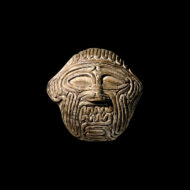There’s been a lot of talk recently about the current hung parliament. Unfortunately there’s been a lot of misinformation, even from political commentators, about the Constitution of the UK, and how that should resolve.
So here’s a quick guide to the situation.
You vote for a Member of Parliament
You don’t vote for a party. You don’t vote for the leader of a party. In a general election in the UK, you vote for a single person to represent you in that parliament.
Most MPs belong to a party, which funds their campaign, and expects them to vote along party lines.
If your MP is a member of the Cabinet, they are obliged to vote with the government according to the doctrine of collective responsibility. Otherwise they are free to vote their conscience until the next election – though most tend to vote along party lines, as to do otherwise can invite deselection from the party. And few these days can afford to stand for parliament without party backing.
The sovereign appoints and dismisses the Prime Minister
Her Majesty the Queen is the person who gets to choose the next Prime Minister of the UK.
Not you. Not the press. Not the political commentators on the TV. It’s the Queen, and no-one else.
Having said that, she is bound by one particular convention – that the selected Prime Minister must be able to command the confidence of the House of Commons.
In normal times, this means appointing the leader of the party which has an overall majority of seats in the Commons.
There is currently no majority party in the House of Commons
No party won 326 seats or more in the recent election, and therefore we have what’s currently known as a hung parliament.
The parties are currently negotiating to see if they can form a coalition. For example, if two or more parties can, together, command 326 or more seats between them, the Queen could call upon the person designated to be the leader of this coalition to form a parliament.
If no agreement can be reached, we will have a minority government
If a successful coalition cannot be negotiated, the Queen will choose the person that she believes would be most likely able to command the confidence of the house. This would most likely be the person whose party commands the greatest number of seats, ie David Cameron. However, without a clear majority, every vote would have to be negotiated with people from outside the ruling party.
Many would claim that this would not be a bad thing.
There is no such thing as an unelected Prime Minister
The person the Queen invites to form her government must be a Member of Parliament. And every Member of Parliament is elected.
The role of Prime Minister is not elected directly in the United Kingdom.
This is all perfectly normal
There have been hung parliaments before. There is no vacuum of power; the current government continues until the Queen invites someone to form a new government and he or she accepts.
It’s exciting, especially if you love politics.
But it’s not unusual, groundbreaking, market-destroying, terrifying, or any kind of Constitutional crisis.

